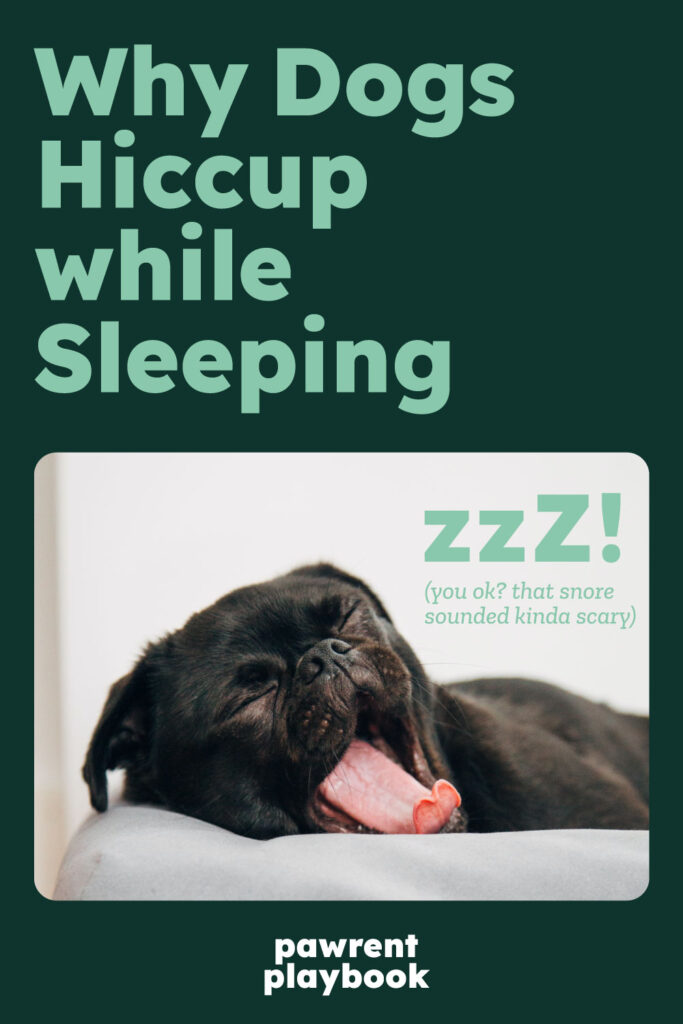
Hiccups in dogs are mostly normal
It’s a common sight for dog owners to witness their four-legged friends experiencing hiccups. Whether it’s an adult dog or a puppy, hiccups can occur in dogs of all ages and breeds. But what exactly are these hiccups, and why do they occur? This blog post delves into the phenomenon of canine hiccups, drawing parallels with human hiccups, and discusses the differences between adult dogs and puppies in this regard. We will also look into various causes of hiccups and provide tips for new pet parents on how to handle these occurrences.
What are dog hiccups?
Hiccups in dogs are caused by uncontrollable spasms of the diaphragm, the muscle that separates the chest cavity from the abdomen and aids in breathing. When the diaphragm contracts abruptly, it causes a quick intake of air that is suddenly stopped by the closing of the vocal cords, creating the characteristic hiccup noises. This involuntary action can be likened to human hiccups, though there are some differences in triggers and frequency.
Why do dogs get hiccups?
Canine hiccups can arise from several reasons, and understanding these causes can help dog owners manage them better:
Eating and Drinking Too Fast: When dogs eat or drink rapidly, they can swallow much air along with their food, leading to diaphragm spasms. This is particularly noticeable in puppies, who often have higher energy levels and may gulp down their food or water.
Excitement or Stress: Just like human hiccups, emotional states can trigger hiccups in dogs. The excitement or stress can disrupt their normal breathing pattern, leading to occasional hiccups.
Overexertion and Play: After a bout of vigorous play or exercise, some dogs might experience hiccups. This could be due to the rapid breathing and heart rate changes associated with physical activity.
Health Conditions: In rare cases, hiccups in dogs could be a sign of illness, like respiratory diseases, gastrointestinal diseases, or even something as specific as kennel cough. It’s essential to observe if the hiccups are accompanied by other symptoms like coughing, sneezing, or an upset stomach.
Differences in Hiccups Between Adult Dogs and Puppies
Puppy hiccups are quite common and can even be considered a part of normal development. In contrast to adult dogs, puppies might experience more frequent hiccup episodes due to their more playful and excitable nature. Their developing diaphragm muscles and the fact that they are still learning to regulate their food intake and breathing can contribute to this. Adult dogs, while they can still get hiccups, usually do so less frequently.
How to Get Rid of Dog Hiccups
Most of the time, hiccups in dogs are harmless and will resolve on their own. However, here are some ways to help your pup:
Encourage Slow Eating: Using slow feeder dog bowls or interactive food puzzle toys can help your dog eat more slowly, reducing the likelihood of swallowing too much air.
Calm Environment: Keeping your dog’s surroundings calm can help prevent hiccups caused by excitement.
Regular Exercise: Ensuring your dog gets adequate exercise can help regulate their breathing and digestive systems, potentially reducing hiccups.
When to Be Concerned About Your Dog’s Hiccups
While occasional hiccups are no cause for concern, certain situations warrant a vet visit:
Persistent Hiccups: If your dog’s hiccups last for an extended period or occur frequently, it could indicate an underlying medical condition.
Accompanying Symptoms: Hiccups accompanied by symptoms like coughing, vomiting, or difficulty breathing could point to more serious health issues.
Preventing Hiccups in Dogs
Preventing hiccups involves addressing their common causes:
Moderate Food Intake: Ensure your dog doesn’t eat large meals too quickly. Using slow feeder dog bowls can be beneficial.
Regular Vet Check-ups: Regular health checks can help identify and treat any underlying health conditions that might cause hiccups.
In conclusion, understanding the causes and treatments of canine hiccups can help dog owners ensure their pets’ comfort. Whether it’s a young puppy experiencing its first hiccups or an adult dog with occasional episodes, knowing when hiccups are normal and when they signal something more serious is vital for your dog’s health. Remember, in most cases, hiccups in dogs are just a quirky part of their endearing nature.
